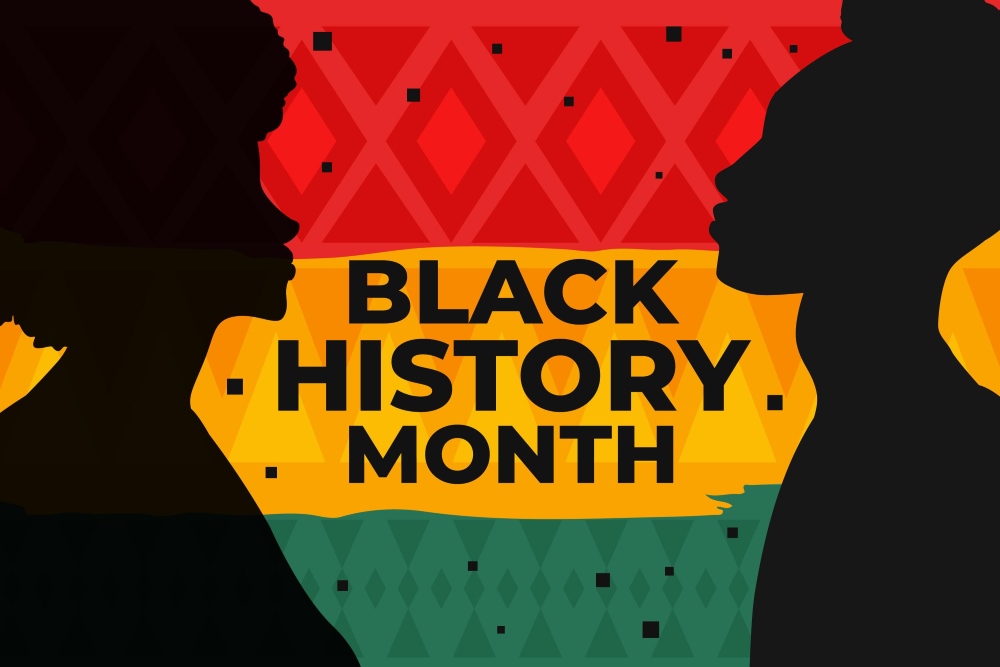Life Style
Black History Month What Is It and Why It Matters
Black History Month What Is It? Black History Month also known as African-American History Month is a time to honor the rich legacy, contributions, and achievements of African Americans throughout history. Observed every February in the United States and Canada, and October in the United Kingdom, this month-long celebration is a crucial reminder of the resilience, creativity, and impact of Black individuals on global culture and progress. But what exactly is Black History Month, and why is it so significant? Let’s dive deeper into its origins, purpose, and continued relevance in today’s society.
The Origins of African-American History Month
To truly understand African-American History Month, we must first explore its roots. It began as “Negro History Week” in 1926, founded by Dr. Carter G. Woodson, a historian often referred to as the “Father of Black History.” Dr. Woodson, along with the Association for the Study of Negro Life and History (ASNLH), initiated this observance to address the lack of African American representation in history books and educational curricula.
The second week of February was chosen to coincide with the birthdays of two prominent figures in the fight for African American equality: Abraham Lincoln, who issued the Emancipation Proclamation, and Frederick Douglass, a former enslaved person turned abolitionist and statesman. This week-long observance gained traction, and by the 1960s, during the height of the Civil Rights Movement, it evolved into Black History Month. In 1976, President Gerald Ford officially recognized February as Black History Month, urging Americans to honor the accomplishments of Black individuals in every field of endeavor.
The Purpose of Black History Month
At its core, Black History Month is a celebration of the contributions that African Americans have made to society, often against tremendous odds. It serves several key purposes:
- Education: African-American History Month highlights the often-overlooked achievements of African Americans. It seeks to correct historical omissions and ensures that future generations learn about the diverse narratives that shape our world.
- Inspiration: The stories of Black leaders, artists, scientists, and activists inspire people of all backgrounds to overcome adversity and strive for greatness.
- Reflection: The month provides an opportunity to reflect on the struggles and systemic injustices faced by African Americans throughout history and in the present day.
- Advocacy: By acknowledging past and present inequalities, African-American History Month encourages action toward racial equity and inclusion.
Why Is Black History Month Celebrated in February?
The choice of February is not arbitrary. As mentioned earlier, it aligns with the birthdays of Abraham Lincoln and Frederick Douglass, both of whom played pivotal roles in African American history. However, the month’s significance goes beyond these figures. February also marks several milestones in Black history, including the passage of the 15th Amendment, which granted African American men the right to vote in 1870.
Black History Month Around the World
While the United States played a central role in the creation of Black History Month, its observance has spread internationally. Canada also celebrates Black History Month in February, officially recognizing it in 1995 thanks to a motion introduced by politician Jean Augustine. In the United Kingdom, Black History Month is observed in October, focusing on the contributions of Black Britons and Afro-Caribbean communities.
These differing dates reflect the unique historical contexts and challenges faced by Black populations in each region. Yet, the overarching goal remains the same: to celebrate and honor Black heritage and culture.
Key Figures and Contributions Celebrated During Black History Month
Black History Month shines a spotlight on individuals and communities who have shaped history. Some notable figures include:
- Martin Luther King Jr.: A leader of the Civil Rights Movement who championed nonviolent resistance and fought for racial equality.
- Harriet Tubman: Known as the “Moses of her people,” Tubman led hundreds of enslaved individuals to freedom via the Underground Railroad.
- Rosa Parks: Her refusal to give up her seat on a segregated bus sparked the Montgomery Bus Boycott and became a symbol of resistance.
- George Washington Carver: An agricultural scientist and inventor who revolutionized farming practices and introduced sustainable agriculture.
- Maya Angelou: A poet, author, and activist whose works continue to inspire generations.
These are just a few of the countless individuals celebrated during African-American History Month. Their contributions span various fields, including science, art, politics, and sports.
The Role of Schools and Communities
Black History Month is a time for schools, libraries, and community organizations to host events, workshops, and educational programs. These activities range from art exhibitions and panel discussions to film screenings and book readings. Schools play a particularly vital role by integrating lessons about Black history into their curricula, fostering a deeper understanding among students.
For example, many schools use this month to explore themes such as the Civil Rights Movement, African American inventors, and the Harlem Renaissance. These lessons not only educate but also promote empathy and respect for diversity.
African-American History Month in the Digital Age
In today’s interconnected world, digital platforms have become essential for celebrating African-American History Month. Social media campaigns, online seminars, and virtual museum tours make it easier than ever to engage with African-American History. Hashtags like #BlackHistoryMonth and #BHM encourage users to share stories, quotes, and resources, amplifying the message of the observance.
Streaming platforms also contribute by highlighting documentaries, movies, and shows that explore African American history and culture. This digital accessibility ensures that African-American History Month reaches a global audience.
Challenges and Criticisms
While Black History Month is widely celebrated, it is not without its challenges and criticisms. Some argue that confining the recognition of Black achievements to one month minimizes their importance throughout the year. Others feel that the focus on historical figures sometimes overshadows contemporary issues facing Black communities, such as systemic racism and economic disparities.
Additionally, there is a call for more inclusivity in the narratives shared during Black History Month. Advocates emphasize the importance of highlighting stories from diverse backgrounds within the African diaspora, including Afro-Latinx, Afro-Caribbean, and Black LGBTQ+ voices.
Why Black History Month Still Matters
In a world where racial inequalities persist, Black History Month remains as relevant as ever. It is a time to confront uncomfortable truths, celebrate progress, and recommit to the fight for justice and equality. By understanding and appreciating African-American History, we can build a more inclusive society that values the contributions of all its members.
Conclusion
Black History Month is more than just a commemorative event; it is a call to action. It challenges us to learn, grow, and advocate for change. By exploring the question “Black History Month What is it?” we uncover not only its historical significance but also its enduring relevance. As we celebrate this month, let us remember that African-American History is American history, and its lessons are invaluable to shaping a better future.





